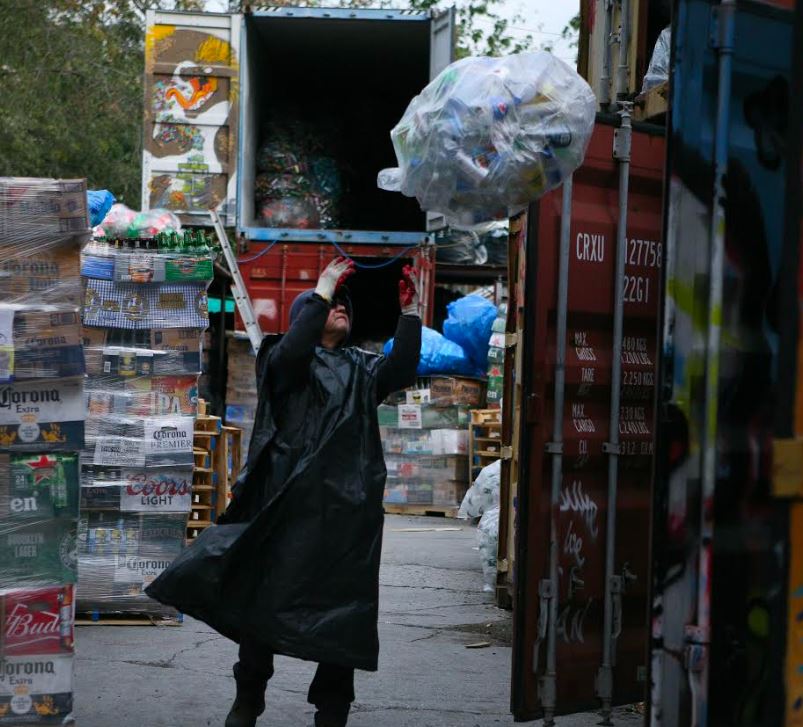
Western Connecticut State University Associate Professor of Anthropology Dr. Christine Hegel has partnered with the international non-governmental organization Women in Informal Employment, Globalizing and Organizing (WIEGO) on a study that aims to measure the impact of the COVID-19 crisis on informal workers.
The study focuses on informal workers in 12 cities around the world, and Hegel is collaborating with Dr. Chris Hartmann (Public Health, SUNY Old Westbury) and Dr. Sari Kisilevsky (Philosophy, Queens College, CUNY) to implement the New York City node of the research. WIEGO has allocated nearly $12,000 for this portion of the study.
Three work sectors are being studied (domestic workers, street vendors and waste pickers), and Hegel and Hartmann are overseeing data collection on waste pickers, also known as “canners,” in New York City. Canners collect, sort and redeem deposit-marked containers to earn or supplement a living, and there are an estimated 8,000-10,000 canners in New York City.
Hegel has been doing anthropological research in the canning community of Brooklyn since 2018, and works closely with the nonprofit redemption center Sure We Can. Her research contributes to ongoing advocacy efforts aimed at recognizing canning as a low-barrier livelihood for economically vulnerable residents that also makes a positive impact on diversion rates of renewable materials in New York City. Most recently, Hegel’s research was used to design a census mobilization plan in the canning community, funded by a $50,000 2020 Census Complete
Count Outreach Grant received by Sure We Can.
For the waste picker node of the WIEGO Covid-19 Crisis Study, Hegel and Hartmann put together a team of 10 researchers that includes WCSU and SUNY Old Westbury students and canners in New York City; they are currently in the process of surveying 70 canners via phone or in-person interview in English, Spanish or Mandarin Chinese. WCSU Anthropology/Sociology students Charla Beauvais and Clay Martin are employed as research assistants on the project, conducting portions of the interview and recording data. This project builds on their research methods coursework in the Department of Social Sciences and provides real-world experience on a rapid-response study. They also are learning about this low-income, marginalized community through the survey, which collects data on economic activities, housing conditions, household composition and survival strategies during the early and later stages of the state-mandated lockdown.
Recent articles by Hegel and Hartmann on canners include: https://nacla.org/news/2020/04/16/informal-recyclers-fight-survival-gentrifying-brooklyn and
www.gothamgazette.com/opinion/9520-informal-recyclers-canners-essential-just-green-nyc-survival. Hegel also has published scholarly articles on issues relating to informal recycling labor in the Proceedings of the Participatory Design Conference.
For more information, send an email to pr@wcsu.edu.